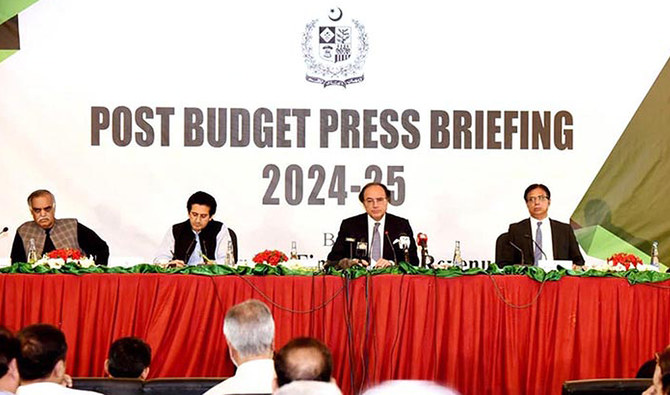Pakistan aims to finalize a staff-level agreement (SLA) with the International Monetary Fund (IMF) for a bailout exceeding $6 billion this month, following the fulfillment of all lender requirements in its annual budget, according to a state minister for finance speaking to Reuters.
The country has set ambitious revenue targets in its annual budget to secure IMF approval for a loan aimed at preventing another economic crisis, despite growing domestic discontent over new taxation measures.
“We anticipate concluding this (IMF) process in the next three to four weeks,” stated Minister of State for Finance, Revenue, and Power Ali Pervaiz Malik on Wednesday, aiming to settle the SLA before the IMF board recess.
“I believe the package will exceed $6 billion,” he remarked on its size, emphasizing the IMF’s validation as the current priority.
The IMF has not yet responded to requests for comment.
Pakistan has set a tax revenue target of 13 trillion rupees ($47 billion) for the fiscal year starting July 1, marking a nearly 40% increase from the previous year, alongside a significant reduction in its fiscal deficit to 5.9% of GDP from 7.4% in the previous year.
Malik explained that the purpose of presenting a tough and unpopular budget was to use it as a foundation for an IMF program, noting the lender’s satisfaction with the revenue measures taken during discussions.
“There are no major issues left to address now that all significant prior actions, including the budget, have been met,” Malik affirmed.
While the budget may receive IMF approval, analysts warn it could provoke public discontent.
“Clearly, these (budget reforms) impose burdens on the local economy, but the IMF program aims at stabilization,” Malik stated.
Sakib Sherani, an economist at Macro Economic Insights, emphasized the urgency of securing a swift agreement with the IMF to alleviate pressure on Pakistan’s foreign exchange reserves and currency, given impending debt repayments and the unwinding of earlier capital and import controls.
“If the process drags on, the central bank may be compelled to temporarily reintroduce import and capital controls,” he cautioned. “This could lead to a period of uncertainty, potentially impacting the equity market rally.”
Since the budget presentation on June 12, the Pakistan Stock Exchange’s KSE-100 index has surged approximately 10%, driven by optimism surrounding the prospects of an IMF bailout package aimed at bolstering the country’s struggling economy.




